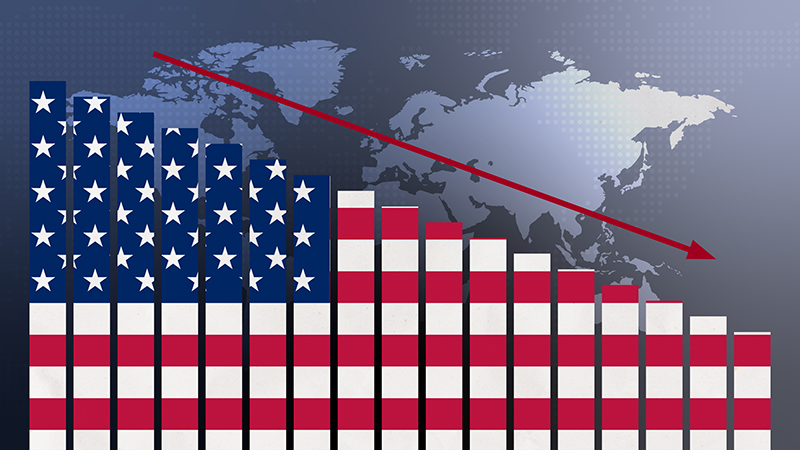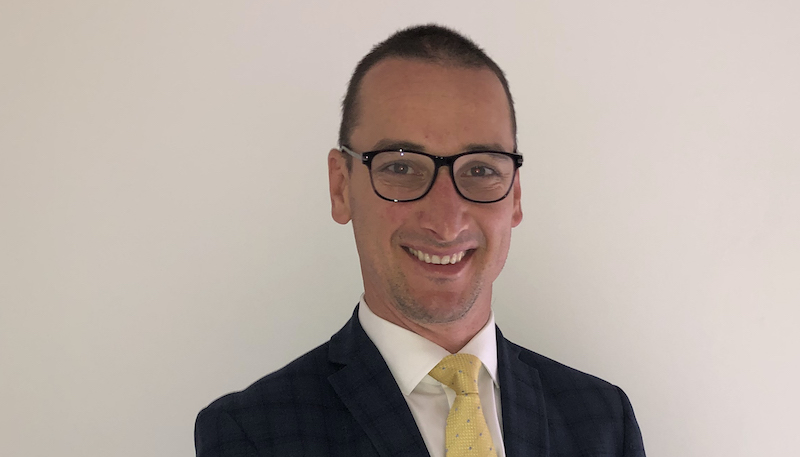“I tend to be a little bit overconfident. It’s an emotional bias I’m aware of, but I definitely don’t lack passion and ambition,” says Shard Capital head of research Ernst Knacke. “But I always try and temper the confidence when it comes to our investing discussions.”
Knacke (pictured) was born and bred in South Africa before moving to the UK in 2006 after finishing university to work at US investment banks Goldman Sachs and Morgan Stanley. It was the thrill and excitement around finance, generated in part by Hollywood films like Wall Street, that lured him to trading, which on paper was a good role for someone who confesses to being overconfident.
But it wasn’t long before Knacke realised his passion within financial services was on the buyside and in 2008 he joined Skandia Investment Group, which later became part of Old Mutual Global Investors and then part of Quilter. He spent 12 years as a senior investment analyst in the multi-asset team where he researched equities and was heavily involved in idea generation and fund manager selection.
Reflecting on that time, Knacke says: “It was a long journey under various CEOs, but I always had more or less the same role of doing fund research, manager selection and portfolio construction.”
Knacke left his role at Quilter Cheviot about 18 months ago when wealth manager Shard Capital and its subsidiary for US expats, Leifbridge, came knocking on his door in July 2020.
Call the shots
The call was from Shard Capital chief investment officer Mike Hollings and Leifbridge partner Neil Williams. The pair were about to launch Leifbridge into the UK market to deliver multi-asset investment services to high net-worth US expats and family offices living in the UK. Knacke was attracted by the “blank sheet of paper” nature of the Leifbridge proposition.
Shard Capital has been around since 2010 when it launched as an institutional stockbroker, but today it is a disparate bunch of businesses also covering direct lending, model portfolios and a listed vehicle investing in early-stage technology companies – but, as Hollings told Portfolio Adviser a year ago, it’s the wealth management arm, Shard Capital Wealth Management, that ties everything together.
As well as the start-up nature of the Leifbridge business, Knacke was drawn to the fact that all three individuals had a shared philosophy of what they wanted to achieve for clients and how.
“My view, like Mike and Neil, is that the right way to manage money in the very long term is by preserving capital in the short term,” he says. “It’s about understanding short-term risks and being able to outperform when markets collapse and having the liquidity and the access to capital to buy these assets when there’s blood on the streets.”
Each member of the team brings a set of skills and a focus that complement each other. Knacke covers the bottom-up, security-specific research, while Hollings is more of a macro thinker, given his 30 years of bonds and convertibles experience at firms such as Morgan Stanley, Société Générale and Rathbones. Williams, meanwhile, “keeps everything together” as the “unofficial CEO”.
“I do more work on our thematic allocation: what are the tailwinds of value creation over the next five, 10, 15 years? And Mike is very much the brains when it comes to the risks we need to manage over the next three, six, 12 months. Neil is more focused on client relationships; he basically brings everything together in a portfolio and manages that alongside the client.”
The team also includes Benny Osei, associate portfolio manager, who monitors the portfolios and analyses new investment opportunities; and Richard Bacon, head of sales and business development, who previously spent 15 years in sales roles at Pimco and Jupiter.
Shared philosophy and clients
Knacke says there is significant overlap between the asset allocation approaches of Shard Capital Wealth and Leifbridge, which stems from the team’s shared investment philosophy.
“We want to create a convertible bond type of pay-off profile, where we protect the clients from downside risk but there is some participation in markets as they rise.”
Differences can occur between the asset allocation of the two businesses because some US citizens living in the UK are typically unable to access Ucits funds due to the punitive tax regime. But if the investment is structured a certain way, it is possible for some Leifbridge clients to invest in Ucits that are also used in Shard Capital Wealth Management products, explains Knacke.
When it comes to finding funds for the portfolios, Knacke says the team seeks to partner with the “right people”, that is individual specialists, anywhere in the world, that have an edge or competitive advantage in what they do.
Forming long-term relationships with providers, Knacke argues, makes creating a solution between existing parties more straightforward and avoids the lengthy process of having to go out to market.
“We want to partner with these individuals for the long term and through that conversation and that journey will come more transparency, more honesty and hopefully better insights,” he explains. “With that comes better execution and the ability to manage our clients’ and our own capital more efficiently.”
On markets, Knacke says he is concerned by people underestimating the possibility of an extended period of higher inflation and how central banks are going to react. Shard’s base case is that higher inflation is transitory, running hot in the coming months before trending back to historical averages in Q1 2022.
But he adds: “If it’s not transitory, or if for some reason inflation runs higher for longer, what are central banks going to do? Are they going to raise rates and cut off the lifeblood to economic growth? Does that mean a significant de-rating of equity markets from extraordinary levels?”
See also: Shard Capital: ‘Central banks have messed things up spectacularly’
Conviction confliction
For fixed income, the question is where this leaves the role of bonds in a portfolio – do they provide protection? “Historically, their role was income and, to some extent, uncorrelated capital preservation and that’s kind of broken.”
Because of these issues, Knacke says a traditional 60/40 portfolio offers investors significant risk that is being under-appreciated, but to address this is complicated.
Shard’s portfolios have been underweight equities of late, which Knacke says has been a tough call, but one taken because valuations remain at extreme levels and the team is not sure economic growth will continue to surprise on the upside.
In Asia they are nervous of contagion from China while in Europe they are uneasy, failing to see where structural growth is likely to come from. They think the UK, however, is best placed to surprise on the upside because sentiment is so negative and the currency is undervalued.
“We believe [UK] economic activity is under-appreciated and the equity market is pretty cheap, and that is not only because of the miners and oil and gas companies. The whole market is generally priced at a lower level relative to American peers.”
Knacke is conflicted on the US and finds it tough to have real conviction. He thinks some of the big tech stocks like Microsoft, Amazon and Google are “phenomenal businesses” and attractive on a free cashflow basis. But one step down the cap scale, companies like Snowflake and Shopify have significantly lower free cashflow and are priced for perfection.
“The alternative is bonds, and we have an even worse outlook for bonds,” he adds. “That’s made it difficult to just ignore equities, so we have a significant equity exposure, but it’s less than half of the book.”
Knacke says any detriment from this risk-off approach has been offset by other exposures, one of which is carbon credits. Companies buy carbon credits from projects targeted at removing or reducing greenhouse gases from the atmosphere to offset their own emissions and can sell these on the secondary market.
“We’re not trying to sell an ESG proposition per se, but the fact is global warming is a problem and the world needs to do something about it – and that includes the investment community,” he says. “One of the outcomes of that is carbon credits are more likely to continue much higher and they have been doing phenomenally well.”
Exposure to alternatives has also ramped up, including infrastructure and property, while the firm has a big book of hedge funds, about 20% of the total. Some of these are alternative Ucits and some more traditional hedge funds that are predominantly market-neutral positions.
Exposure to physical gold was increased recently as well as other commodities. On holding gold, Knacke says the thesis is to protect against central bank policy error: “A stagflation scenario where people realise that all the money that’s been printed over the past decade is not free and no one knows how it is all going to be paid for. So, to some extent, gold is our true store of value.”
But looking ahead, Knacke sees merit in digital currencies, particularly bitcoin, as the “gold of the future”.
What lies ahead for Shard Capital and Leifbridge? Knacke says despite a slower start to Leifbridge than hoped due to the pandemic, being a small company means everyone has mucked in and together they are positive on the outlook.
“It’s tough to start a business, but we’re going in the right direction,” adds Knacke. “I’m super-optimistic.”
This article first appeared in the December 2021 issue of Portfolio Adviser. Read more here.











